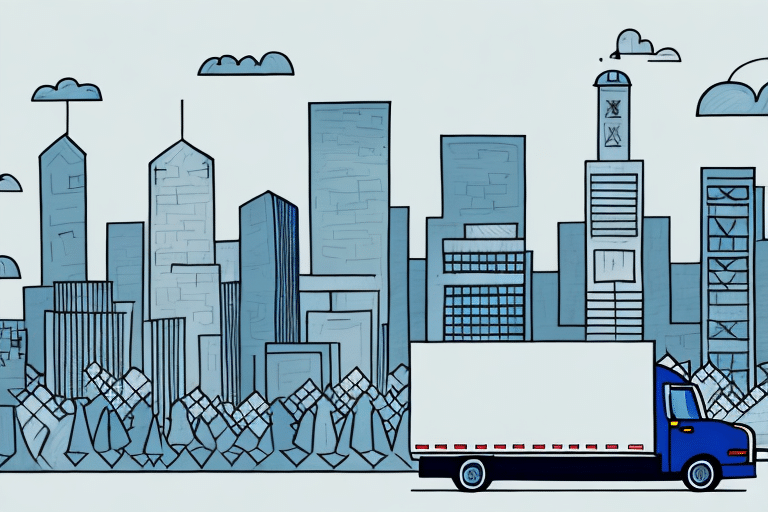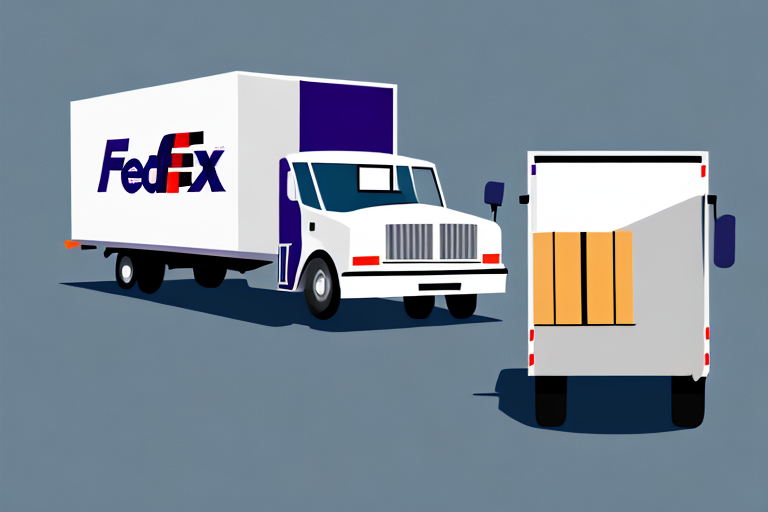FedEx Announces Delivery Exceptions and Their Impact on Customers
FedEx, one of the largest courier services globally, has recently announced delivery exceptions that have caused significant delays in package deliveries. This development has raised concerns among customers who depend on FedEx for timely shipping and handling of critical goods and products. This article delves into the reasons behind these delivery exceptions, their impact on customers, and the measures FedEx is taking to address these challenges.
Causes of FedEx's Delivery Exceptions
Surge in Online Shopping
The COVID-19 pandemic has led to a substantial increase in online shopping, resulting in a surge in package volumes worldwide. According to the Statista report, U.S. e-commerce sales grew by over 30% in 2020, putting immense pressure on delivery networks like FedEx's.
Operational Challenges
FedEx has faced several operational hurdles, including driver shortages, flight cancellations, and distribution center closures. These challenges have been exacerbated by the pandemic, making it difficult to maintain the usual delivery timelines.
External Factors
Extreme weather conditions, natural disasters, and other unforeseen events have also disrupted FedEx's transportation and delivery processes. These factors can lead to delays, rerouting of packages, or even returns to the sender.
Understanding Delivery Exceptions
Definition and Causes
A delivery exception occurs when a package expected to arrive on a specific date and time faces unexpected delays. Common causes include severe weather, incorrect address information, package damage, and customs clearance issues for international shipments.
Customs and International Delays
For international shipments, delays can occur due to customs inspections or the need for additional documentation. It's crucial for customers to track their packages and contact FedEx with any concerns regarding customs-related delays.
Impact of Delivery Exceptions on Customers
Customer Inconvenience
Delivery delays cause significant inconvenience, frustration, and potential financial losses for customers relying on timely deliveries for personal and business needs.
Reputation and Customer Trust
Repeated delivery exceptions have negatively impacted FedEx's reputation, leading to negative reviews and diminishing customer trust. A Forbes article highlights how delivery performance directly influences a company's reputation.
Financial Implications
For businesses, delayed deliveries can result in missed deadlines, lost sales, and damaged goods, leading to substantial financial losses. Having contingency plans is essential to mitigate these risks.
FedEx's Response to Delivery Exceptions
Increasing Capacity and Workforce
FedEx has been hiring additional staff and increasing its operational capacity to handle the surge in package volumes. This includes expanding its workforce and optimizing delivery routes.
Implementing Advanced Technology
The company has invested in new technologies to enhance package tracking and handling. Improved tracking systems provide real-time updates, allowing customers to monitor their shipments more effectively.
Introducing Delivery Manager
FedEx's "Delivery Manager" feature allows customers to customize their delivery options. Users can reschedule deliveries, change delivery addresses, or request package holds at FedEx locations, reducing the likelihood of missed deliveries.
Enhancing Communication
FedEx has improved its communication channels to keep customers informed about their package statuses and the reasons behind any delays. Transparent communication helps alleviate customer concerns and improve overall satisfaction.
Customer Feedback and Complaints
Common Issues
Customers have reported frustrations regarding delayed deliveries, lack of communication, and inadequate compensation for inconveniences caused by delivery exceptions.
Addressing Complaints
FedEx has acknowledged these concerns and is working on better handling of customer complaints. Efforts include improving customer service responsiveness and offering more effective compensation solutions.
Comparative Analysis with Other Courier Services
Industry-Wide Challenges
Other major courier services like UPS, DHL, and Amazon are also experiencing similar delivery challenges due to increased package volumes and operational disruptions from the pandemic.
Mitigation Strategies
These companies are implementing measures such as hiring more staff, expanding their delivery networks, and investing in technology to manage the surge in demand. For example, UPS has increased its capacity by hiring additional workers and adding more flights to its network.
Strategies to Prevent Future Delivery Exceptions
Enhancing Operational Efficiency
Courier services must continue to optimize their delivery networks, invest in automation, and streamline processes to handle higher package volumes efficiently.
Investing in Workforce
Building a robust workforce by offering competitive wages and benefits can help mitigate driver shortages and improve delivery reliability.
Improving Technology
Advanced tracking systems, AI-driven logistics, and real-time data analytics can help predict and address potential delays before they impact customers.
Strengthening Communication
Maintaining transparent and proactive communication with customers about their shipments and any expected delays is crucial for maintaining trust and satisfaction.
Legal and Financial Implications
Legal Responsibilities
Delivery exceptions can lead to legal claims, especially if delays result in financial losses or damaged goods. Courier services must handle such claims transparently and fairly to protect their reputations.
Financial Strategies
Implementing contingency plans and investing in more resilient logistics networks can help mitigate the financial impact of delivery exceptions on both the company and its customers.
The Role of Reliable Shipping in the Modern Economy
Reliable shipping and handling services are essential for the efficient functioning of supply chains and the broader economy. As e-commerce continues to grow, investing in resilient and flexible logistics networks is paramount for businesses to thrive.
In conclusion, FedEx's current delivery exceptions are a result of increased demand and operational challenges exacerbated by the pandemic. These delays have had significant impacts on customers and the company's reputation. By investing in capacity, technology, and workforce, and by enhancing communication with customers, FedEx aims to overcome these challenges and ensure reliable delivery services in the future.




















